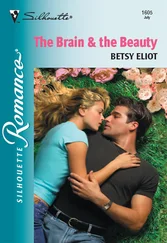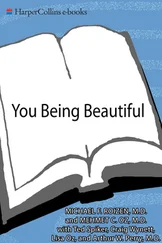1 ...6 7 8 10 11 12 ...15 Why not Bruce Robinson? He had a beautiful wide mouth wittily ironised by the quotation-mark lines around it, enormous cool, even greater charisma, talent (see Adele H.), brains, training (RADA), star quality (if you'll excuse the cobwebs on those words), and he talked, well, the guy talked and still talks like the greatest talker in the English language.
‘Vivian was too smart to get a job – an intellectual, erudite man. He'd go to an audition to play a priest, read up all this cackle of theological bollocks and then say, “It's very strange you should be considering me for this part because before I became an actor I was considering the priesthood.” And they knew it was nonsense, so he'd never get the job.’
Just one of the quieter bits from a twenty-page interview he did in 1995. Not a great story, but what is that word ‘cackle’?
Another bit, reluctantly endorsing capital punishment for rapists of children:
‘Dead him, is my view.’
Concerning a Spielberg project about a psychic woman and a child killer, which never got off the ground:
‘It's as black as your hat. This woman bounces off the lino of hell.’
The lino of hell? ‘Black as your hat’ I'm pretty sure is a phrase. But nobody uses it any more. It's remembered or rescued language. What a great phrase anyway, black as your hat – I hope it comes back. But ‘the lino of hell’? ‘Dead him’? A ‘cackle’ of something? You know who he reminds me of? William Shakespeare, that's who. That's what Shakespeare used to do instinctively, that black as a hat, lino of hell thing. He'd make something up (‘the multitudinous seas incarnadine’) and then let the groundlings know what he meant (‘making the green one red’).
I love Bruce Robinson, and all this is merely to remind you of what a great guy he is, this failed actor. Because it's not just the RADA boys who ‘only’ make a dozen films who are failed actors. It's not just the RADA boys who make no films at all who are failed actors. It's not just the boys who didn't get into RADA but still managed a lot of acting who are failed actors. It's not just the boys who were bloody good in the school play but didn't bother taking it any further who are failed actors. It's not even the boys who were OK in the school play but didn't bother taking it any further who are failed actors (like me). It's the boys, that is to say pretty much everyone in the world, who stand in front of the mirror one day, just once, casually, and think shame I'm no actor. They're the failed actors too. Most of this planet consists of failed actors.
So the parting scene at the end of Withnail and I, with its dramatisation of the sorting of the successful from the failed, I find as universal as Rick and Ilsa on the tarmac in Casablanca. The ‘I’ character is moving on, off to Manchester to play the lead in Journey's End. Withnail wants to walk him through Regent's Park to Euston, but it's raining cats and dogs and ‘I’ would rather have a quick clean break. He refuses the wine which Withnail presses on him and asks him to go back, and Withnail, perhaps realising for the first time that he will never play Hamlet (one of the film's motifs), turns to the wolves of the zoo, those same wolves which gave such comfort to Ted Hughes and his children after their mother killed herself, and gives them ‘I have of late, but wherefore I know not …’ Then he turns back through the rain towards Camden, where, if he looked to the right he'd see Park Crescent, where Robert Donat left his milkman's cart in The Thirty-Nine Steps, and if he turned his head further he'd see the cul-de-sac of St Andrew's Place where Glenda Jackson gave Salome's Last Dance for Ken Russell. And then he'd walk past Chester Terrace where Bette Davis scared the kids in The Nanny and down which Robert Redford would drive in Spy Game: all the successful actors. I is a success. I is saved. I wanted to be I, but Jim was I, I thought.
Jeff Sawtell, the film critic of the Journal, was so much of a communist that he wore navy blue Cultural Revolution pyjamas all year round, adding only a scarf in winter. ‘If you like your brew in a mug,’ he said to my excited inquiry about Four Weddings and a Funeral, ‘then it won't be your cup of tea.’ One got the impression that Jeff thought Jean-Luc Godard was a lickspittle bourgeois dog. A liver disease was making him progressively weaker, however, and Eric had nowhere else to turn but to me. I was thrilled, a thrill vitiated only by the lingering suspicion I had learned reading Jeff that movie reviewing was a branch of Marxist socio-economic theory.
‘Will this do?’ I asked Jim, showing him my first ever review, of a Richard Gere movie called Mr Jones.
It read:
The screen persists in portraying the mentally ill as remarkably gifted on the side. Not only is Mr Jones a virtuoso pianist, he is also a whizzkid mathematician and mind-reader. This kind of publicity does mental health organizations like MIND no good whatsoever.
Umbraged social comment, that was the thing. Plus the MIND charity shop was three doors down from the Journal. I practically killed myself trying to work out why the incontestable Pulp Fiction was somehow despicably pro-capitalist. Also, you had to write something about guns – God knows what, but something about how a gun was in some way very similar to a camera. I knew it was in that kind of area. And there was nobody I could ask at the screening-rooms, where the atmosphere seemed strangely furtive and even shameful, as if one were in a municipal library where near-derelicts came to get out of the cold, and lovingly fold the newspaper into columns. Always, there would be four or five very old critics no longer attached, as far as one could see, to any particular publication, always in macs, always carrying little briefcases as blazons of busyness, grey and indeterminate as pigeons and vigilant over their rations of the free chocolate digestives, with which the pockets of their macs bulged. The husks of critics.
It was only to visit the screening-rooms that I left Jim's bed. There was the need to earn enough money not to be swallowed by London; and there was my lover telling me to stick a bottle of champagne on his tab at Liberties Bar on the High Street and get my arse round to the twenty-third floor. We didn't tell anyone at the Journal – although Eric, with his tactful omniscience, probably knew – and so we were wrapped up as close together as any adulterers. In bed, Jim always seemed doubly naked. It was the only place where he was divested of politics. Restored to his yellow coat, with a bottle of Teacher's, he was back on: ‘Have you ever noticed that the first screen on a cashpoint is actually pleading with you, saying PLEASE INSERT YOUR CARD? Fucking beseeching you to spend your money?’ And I would attempt to reflect this kind of thing in my reviews of movies like The Little Mermaid.
I came to know the pleasant tattiness of the Soho screening-rooms; the bulk of Philip French of the Observer's trainers, which he wore as though to speed himself breathlessly down Wardour Street from one classic to another. I came to know the little inset ashtrays that still survived like a memory of fifties luxury in the seats' armrests. The yellow cashmere scarf that the Evening Standard's Alexander Walker would wear with its admirable implication that a film deserved the compliment of your having dressed for it. I came to realise that nobody had one of those pens with a light that you always assume movie critics use. And then back through the winter to Jim's flat to wait for him.
He drank all the time. What he was was a ‘high-functioning alcoholic’, as they say. And even this, even the companionable imperfection of sleeping with someone who's a bit of a mess felt like a freedom, a liberation from the tyranny of physical perfection, so that I came to know him more fully than I would have otherwise. I was happy, and I thought Eric was maybe going to keep me.
Читать дальше












